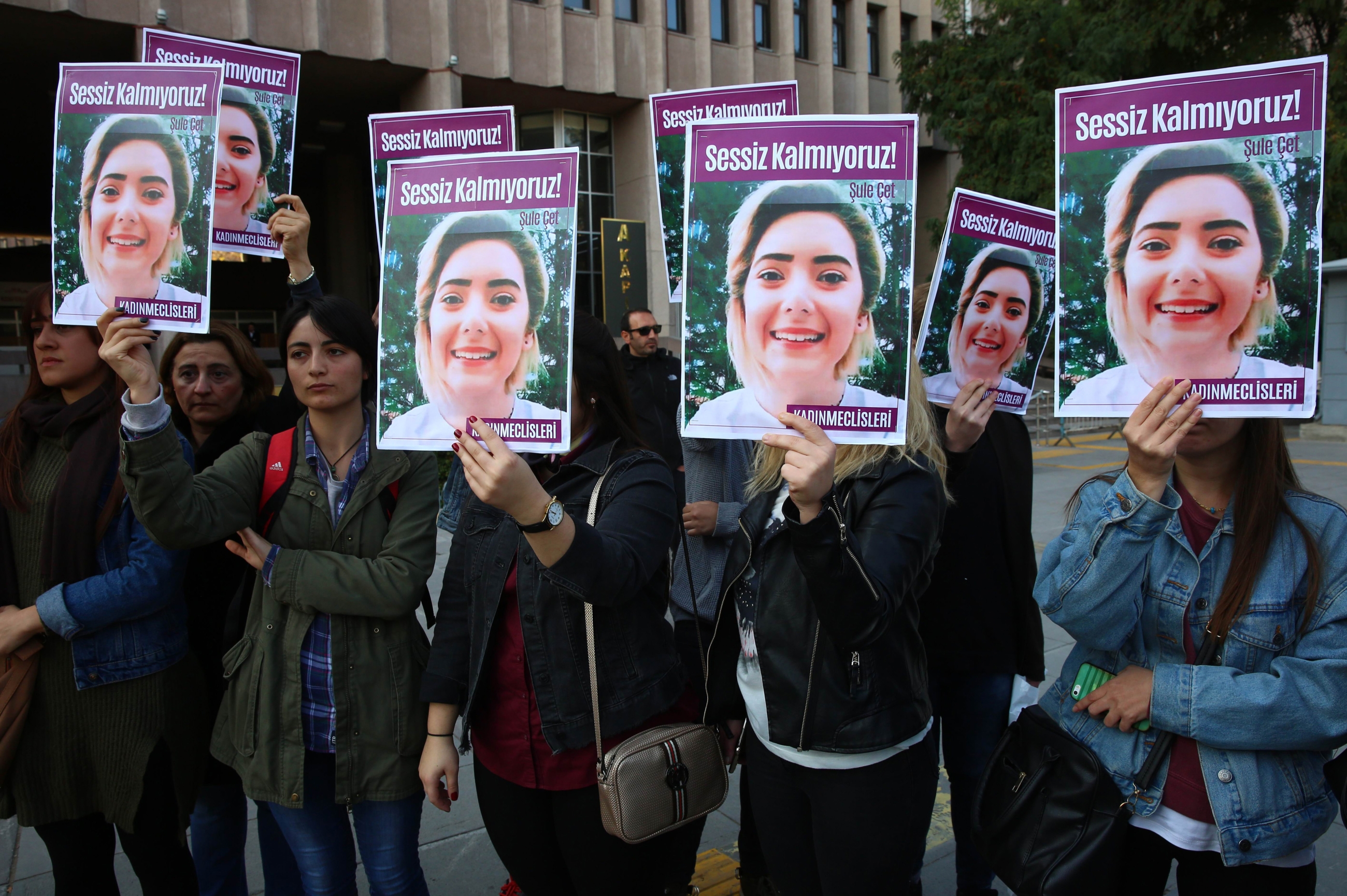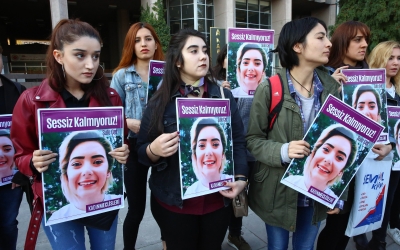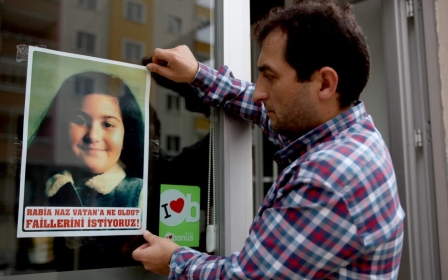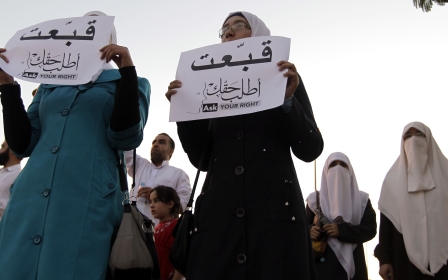Two men convicted of murdering student in high-profile femicide case

Two men have been sentenced over the killing of Turkish student Sule Cet, in one of the most controversial femicide cases in the country in the past several years.
A court in Ankara on Wednesday sentenced businessman Cagatay Aksu to life in jail for the rape and murder of the 23-year old, while his colleague Berk Akand was sentenced to 18 years and nine months for assisting in the crimes, said the state-backed Anadolu Agency.
The body of Cet was found on the street beneath a plaza in Turkey's capital in May 2018 after she allegedly fell from the 20th floor of a high-rise building.
According to Aksu and Akand, she had committed suicide, a claim initially backed up by the police and the local prosecutor's office.

However, after heavy campaigning by women's rights groups, journalists and politicians, Cet's case was reopened as a murder investigation.
“I can’t get out of here. The man is obsessed with me. He won’t let me go. I wish I hadn’t come," she wrote in a text to a friend shortly before her death.
The defendants and their lawyers repeatedly cast aspersions on Cet's character throughout the trial, saying she had been consuming alcohol and was not a virgin.
At one hearing, Aksu reportedly told Cet's father: "If only you'd looked after your daughter."
Umur Yildirim, the lawyer for the Cet family, said that they welcomed the verdict, but would be appealing the reduced sentence for Aksu, which he received due to "his good behaviour at court".
Aksu, who had previously hired Cet as an assistant before firing her, continued to stress his innocence in the courtroom, with his lawyer claiming the case was “under the pressure of the public”.
Femicide epidemic
The case has provoked anger and as symbolic of what has been seen as an epidemic of femicide across Turkey, with the We Will Stop Femicide platform reporting 39 women killed by men in November alone.
According to the group, 440 women were killed by men in Turkey in 2018. Out of these, they classified 30 percent as "suspicious".
Despite the fact that Turkey was one of the first countries to sign the Istanbul Convention in 2011 - which aims at preventing violence against women across Europe - the country was ranked 137 out of 149 countries in the World Economic Forum's 2018 gender gap index.
Ceyda Ululayka, creator of the online Femicide Map - which maps the deaths of women across Turkey - told Middle East Eye in April that the sheer volume of women killed in the country meant their cases were often overlooked.
"In Turkey, at least one woman was killed by a man per day. We read about these criminal cases as third-page news and then they just get lost," she explained.
"These numbers basically say that we need much more protection mechanisms for women. All we need is to accept that femicide is preventable."
'End impunity'
Feminist groups who marched in Istanbul on 25 November - to mark the International Day for the Elimination of Violence against Women - faced plastic bullets and tear gas.
Among the 2,000 people marching in the city were activists carrying banners that read "end impunity" and "we cannot tolerate the loss of one more woman".
The face of Cet appeared on many placards, as well as the faces of other publicised cases of women and girls who were murdered or died in suspicious circumstances, such as Ozgecan Aslan, Aysun Yildirim and Rabia Naz Vatan.
Mansur Yavas, the mayor of Ankara, highlighted in a tweet the case of Ceren Ozdemir, a young ballerina who was murdered in front of her apartment in the port city of Ordu on Tuesday evening.
A suspect has been reportedly caught, after a scuffle that saw one police officer wounded.
'Today, a young woman, Ceren Ozdemir, was stabbed in the heart and lost her life," wrote Yavas. "Today again the perpetrators of the murder of Sule Cet were given the necessary punishment.
"Deterrent penal sanctions should be imposed in the legal framework in order to prevent the increasing murder of women."
Middle East Eye delivers independent and unrivalled coverage and analysis of the Middle East, North Africa and beyond. To learn more about republishing this content and the associated fees, please fill out this form. More about MEE can be found here.




